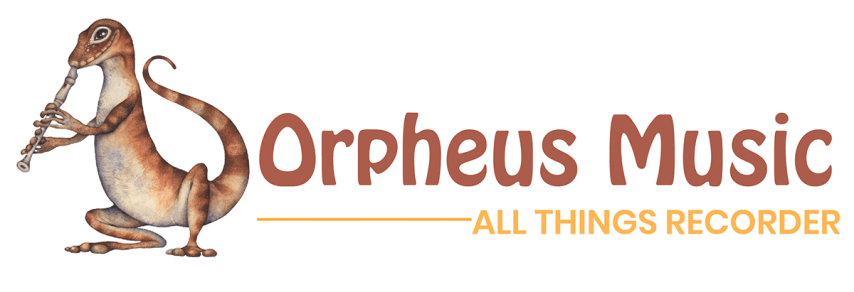
AMEB - Australian Music Examinations Board
Note: Orpheus Music takes no responsibility for any out of date information, or any information that may have changed since writing this webpage. Exam candidates must do their own research in order to have the most up to date details for each of the syllabuses rules and regulations.
This is designed as a resource for recorder players around Australia and may be useful to recorder players around the world. All prices linked are in AUD unless stated otherwise.
This was last updated in Dec 2021.
Click here to view all the AMEB sheet music that Orpheus music stocks, catalogued per grade or diploma.
Covid
To stay updated the online examinations due to covid-19 click here. For more information about changes to recorded examinations please click here. You may need to go to your AMEB state website (NSW, VIC, etc...) for more specific information.
Syllabus
While AMEB regularly update other instrument’s syllabuses, AMEB have not updated their syllabus for the recorder since 1988.
There are several consequences of this:
The recorder syllabus lacks thirty years worth of contemporary music.
Both the technical work and the compositions chosen for the 1988 syllabus are now considered to be much easier than when the syllabus was created. For example Music for a Bird by Hans Martin Linde is Grade 6 in Trinity College London but in AMEB it is in their Licentiate diploma.
Many of the listed publications are now out of print and can no longer be purchased.
When comparing syllabuses, the central issue is the currency of the syllabuses. The AMEB Recorder Syllabus is many years out of date and needs to be reviewed in order to remain relevant to Australian recorder players.
If you would like to consult the AMEB syllabus it is available from $9.95 to download from their website.
Grades (1- 8)
Candidates must choose repertoire from set lists: A, B, C and in later grades D. The set lists provide a balanced programme with some pieces for solo recorder, or with accompaniment and for both C and F fingering in later grades.
Technical requirements in the Grades:
After performing your pieces in the graded exams, you will then be tested on your aural skills, sight reading and scales.
Click here for the AMEB scales for Recorder.
Extra requirements in the Grades:
Like ABRSM, AMEB requires candidates to take music theory exams in order to receive their certificates.
For exams from Preliminary to Grade 5, passing a music theory exam is not mandatory.
From Grade 6 practical exams and up, you will need to pass a music theory exam in order to be awarded a certificate for your practical exam. Theory exams can be taken either before or after the practical exams. However, you won’t receive your practical exam certificate until you have passed the theory component (Grade 6 exams and up).
Diplomas - AMusA, LMusA, FMusA
After you've completed the grades in one of the recorder Syllabuses you can take diplomas. Anyone undertaking a Diploma is expected to deliver a professional level recital on the recorder. These high quality certificates are called Associate, Licentiate and Fellowship.
AMusA
The Associate Diploma is highly respected in the international music community and recognises a sophistication of musical understanding and performance abilities that are well above the requirements for Grade 8.
Note: The success rate for AMusA is much lower than for Grade examinations. To avoid disappointment, it is therefore suggested that teachers with limited experience in presenting candidates at Diploma level obtain advice from an experienced teacher before entering candidates for AMusA.
LMusA
The Licentiate examination is assessed as a concert performance. This means that, in addition to a high level of fluency and accuracy, the candidate is expected to show a strong personal engagement with the expressive element together with the ability to develop and maintain a convincing musical narrative.
A key expectation is that candidates will demonstrate an advanced and consistent level of technical accomplishment, a mature musical understanding and the ability to feel and project the changing mood and character of the works that are performed. Put another way, the emphasis is upon the ability to communicate musical and expressive content without technical impediments. Technical accomplishment, therefore, needs to extend beyond mere accuracy and fluency (essential though they are) to support a mature level of musicianship and demonstrate a personal expressive engagement with the repertoire.
While Aural skills, scales, and sight reading are not tested in the diplomas there is a General knowledge assessment after the recital. Candidates will be expected to demonstrate a mature understanding of the structure, style and historical background of the repertoire that is performed and to use this as a basis for discussing the interpretive choices that they make.
The syllabus clearly states that at least one complete work needs to be performed from memory.
The Fellowship has been reintroduced as of 2020. For more information about this diploma click here.
Enrolment Dates & Fees in Australia
For details please visit AMEB website and click on the state you live in for more details.
Or
Click here for the the NSW website.
Click here for VIC website.
Click here for QLD website.
Click here for WA website.










